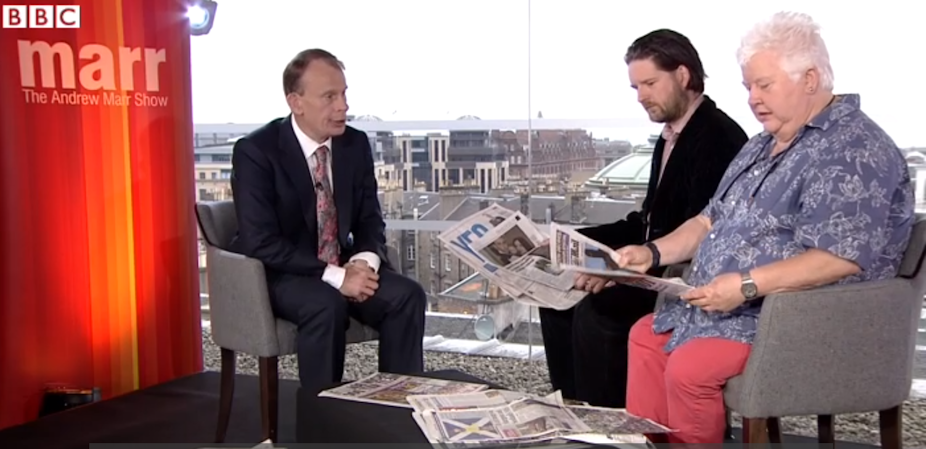You can hardly miss all the Scottish writers who are engaged in the business of considering the state of an independent Scotland – writers such as Val McDermid on The Andrew Marr Show, or the poet John Burnside in the London Review of Books, or Irvine Welsh here and there.
I find myself (with a smile on my face) counting up the number of them who aren’t published by English houses or engaged deeply and energetically with a cultural life south of the border. And whatever remnant is left, it is worth asking (again with a smile) how many among them are not – despite all the talk of independence of mind and politics and spirit – deeply desirous for review coverage and a readership that is much larger than can be afforded by a country that might split off on its own with its own Scottish newspapers and possibly even its own BBC?
Because of course writers want more for their work than any kind of localised reception. Doesn’t our choice of publishers and the pieces we write for the national – not only Scottish – papers prove that we do? Yet so many of them are, even so, our literary spokespeople, cheering and “aye"ing and waving the Saltire … when the literary discussion about what’s Scottish and what’s not is surely long over.
The paradox of Scottish writing
Indeed, Scottish letters is now in its interesting follow-on phase, with Scottish writers setting their work way beyond the border, embedding it hard in Salmond’s "dark star” of a metropolis and further afield even (albeit as poet and scholar Alan Riach rightly pointed out recently, we are still waiting for there to be established more than the one department of Scottish literature in the entire kingdom that exists at his University of Glasgow).
So why, with the history of Scottish literature thus so established that it might represent anything it pleases, should fiction and poetry now feel it must play a part in the nation’s deliberations?
In some cases you also have to question writers’ motives. One prominent Yes thinker admitted to a colleague recently that the whole issue of an independent Scotland was “great for business”. In the midst of numerous media appearances, this surely adds to the sense that this debate may well indeed profit certain writers.
Our undeniable shared language
For those of us whose currency is in words, not economics or fiscal policy, we have to admit to the same language, north and south of the border, and admit that despite what many of those poets and novelists say – when they say, as they say often, that no one cares about Scottish literature – we all, across the British isles, read the same books. The issue of a shared language and culture is just that – shared.
So enough of all the chat from our chattering imaginative classes. I want to read column inches from economists and political scientists and historians who will tell me about all of those things that really will be separate and demarcated and different if we have an independent Scotland. Informed, authoritative content free from spin or politics.
I want there to be pieces in all our papers about the things that will be real. Articles and essays and opeds about money and taxes and policy written not by politicians or writers or poets but by scholars and experts and statisticians – those other kinds of writers. What’s needed now is opinions and thoughts arrived at from fact, not fantasy. We need there to be much ado about … something, after all.

